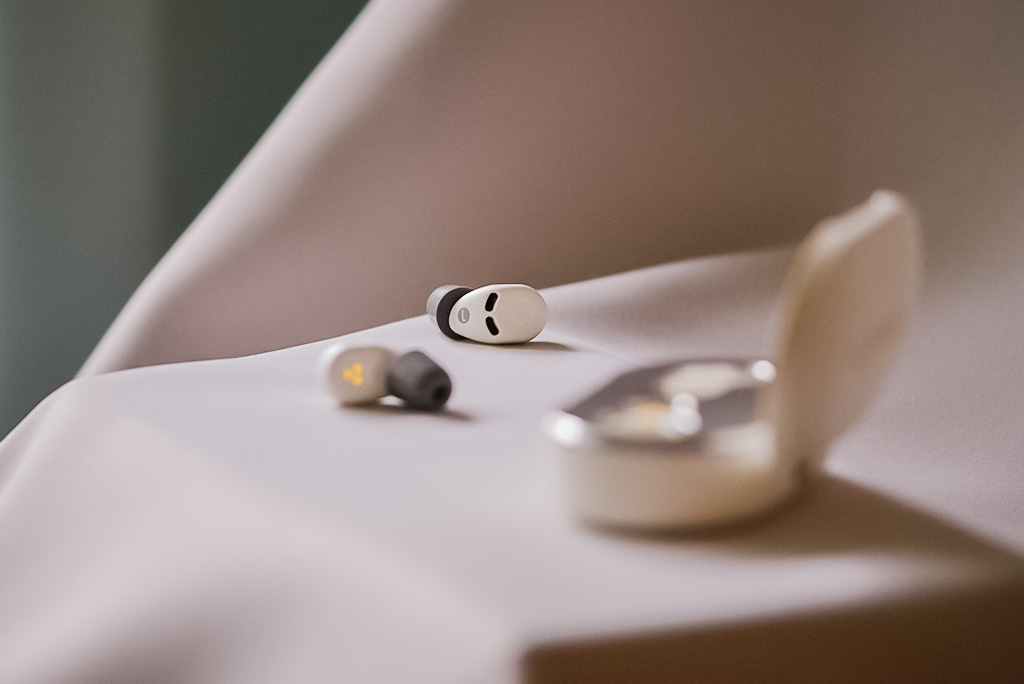Your cart is currently empty!
Types of Stress Part 3: The stress busters
In our three-part (part 1 & part 2) stress special, this last and third article focuses solely on the stress busters. In general language: how to kill the stress. This article goes through these topics: To attack or to defend, or both? Breathe the stress away Passive stress busters Who you gonna call? Stress buster…

In our three-part (part 1 & part 2) stress special, this last and third article focuses solely on the stress busters. In general language: how to kill the stress.
This article goes through these topics:
- To attack or to defend, or both?
- Breathe the stress away
- Passive stress busters
- Who you gonna call?
- Stress buster activities
- Stress leave
The most obvious and straight forward way of reducing or eliminating stress is to reduce or eliminate the sources, i.e., stressors. Many of which we went through in the first article of the series. Another approach is to refine skills and prepare circumstances to help cope with and reduce the effects of the stressors. Especially the ones that might not be realistically removable (such as a stressful but steady job when there isn’t another one in sight). Regarding these kinds of relieving and resisting methods we have previously covered tips for better sleep quality and earlier for coping with disruptive noise.
To attack or to defend, or both?
These two means to the same end do not rule each other out. They rather back each other up like sword and shield. The setting brings to mind the words of the American theologian Reinhold Niebuhr. He once wished for “serenity to accept the things that can’t be changed, courage to change the ones that can be changed, and wisdom to know the difference”.

Since our own stress system doesn’t know the difference, it’s easy to overestimate its ability to cope and/or recover. If the system is already under considerable pressure it might not take a lot to tip over the scale. A temporary stress overload can happen to anyone and is not automatically a cause for alarm. However, if the situation is not given a chance to improve, it results in chronic stress and eventually a burnout. To prevent this from happening and specially to mend the situation, the aforementioned Serenity Prayer is truly a smart guideline to utilize.
As is often the case with smart guidelines, they are easier said than done. Whether you’re unable to identify your stressors (it can be tricky, we know), or are well aware of them but for some reason can’t remove them from your life, (ain’t that a drag as well?) the most important thing is to cut yourself some slack. We can’t all be expected to be our own psychiatrists or personal trainers. Being able to accept your own limits and admitting to having a problem are already huge steps. Tackling your stress load from any angle is a great next step.
As we are presumptuous enough to assume you are here because of either intense, severe or chronic stress, without further ado, let’s delve into a variety of remedies, a.k.a. stress busters. Hopefully they will ease your burden.
Breathe the stress away
One of the most classic responses to someone in the midst of seemingly severe pressure is “Breathe!”. Even if it has to be regarded as somewhat a cliché, the underlying idea of this good-natured exclamation is on to something solid. Depending on the case, the person might be genuinely worried about the other one passing out, but when it comes to stress, there’s never harm in taking a deep breath. Except, under water.
Breathing is one of the best stress busters. If you think about your breathing in a calm and relaxed state and compare it to a stressful situation, you’ll notice a distinct difference. In a relaxed state the slower respiratory rate is a result of the slowing down of other vital functions since they don’t need oxygen in the same amounts or as fast as when agitated. What’s funky is that this also works the other way around. Consciously taking your breathing under control and slowing it down calms down the rest of your being. To get better with it there are a lot of different techniques and exercises to try out.

Another great way of addressing stress is meditation. It is closely knit to breathing exercises and in fact utilizes breathing in an essential way. Meditation can have a scientifically proven stress-lowering effect. Since they don’t necessarily have to take a lot of time, different meditative and mindfulness exercises are fairly easy to incorporate even in a tight daily routine.
Passive stress busters
Sometimes your life is so hectic, you feel like there’s no more energy to spare for active stress relieving efforts. But a great way is to let something else do it for you. Everyone’s seen a movie where a stressed-out lawyer or federal agent takes a hot bath after a hard day’s work. They don’t do it just to soak their toes. Combine this with a good audio book and avot! Your mind is off annoying things.
Listening to music, watching your favourite show or a long-awaited movie are also great ways to switch off the stressors. Of course, sometimes one can’t imagine anything better than complete silence.

Stress among other things, can cause muscle tension and pain so why wouldn’t you hit two birds with one stone and combine relaxation and muscle care? Especially since muscle care, in addition to strength training, is something that should be a part of everyone’s fitness regime anyway.
Who you gonna call?
Ti-di-dii-di-dii-di, ti-di-di-di-dii-di, ti-di-dii-di-dii-di, ti-di-di-di-dii-di, Who ya gonna call?
Stressbusters!

Just kidding. But how about calling a friend or a family member? If you’re suffering from chronic stress, whether you realise it’s a symptom or not, you might have noticed a need to withdraw from others. In this condition sliding into the middle of a crowded dance floor or mingling at a cocktail party might not make you feel any better. It could rather make you more anxious (not that we would recommend these kinds of activities at the moment anyway).
Have a chat with someone
However, talking to a good friend or a loved one even on the phone is an excellent stress buster. For many people putting their worries, anxieties, disappointments and other such stress-inducing thoughts into words also organizes the thoughts in their own heads. Writing down the thoughts often works wonders for the same reason.
When pouring your heart out it’s of course good to keep in mind that your friend is not your therapist. Unless you’ve befriended your therapist. Let’s move on.
Spend time with friends
Obviously hanging out with or talking to a friend doesn’t have to be all moping and moaning. As we are social creatures, just being in the company of someone might make a huge difference. This way other people can be our stress busters by simply existing. In addition, spending time together and talking about anything else except the stressful matters is a great way of taking your mind of off stressful matters. Also concentrating together on something, like a game, is an excellent way to ease an overall stressed-out state.
Or spend time with your pet
One effective and often overlooked thing is the company of animals. It works magic. For many people it’s even more effective than company of friends. Moreover, the use of the company and touch of animals is in fact used as a form of therapy. Not only does it reduce stress, cuddling with your pet can save an entire gloomy day.
Stress buster activities
Even if it’s an easy first thought that the answer to intense stress is some form of rest or relaxation, in many cases it’s true. In other cases, it’s only a half-truth or not especially necessary on top of a normal good night’s sleep. If you experience a lot of work-related stress but it’s mainly mental or emotional, physical activities might be just what you need.
It’s no wonder many people play sports and/or exercise, almost as much as a stress buster as a way of keeping fit. Many people even experience it as a positive need. Exercising works because it releases hormones that reduce the perception of pain, it promotes positive feelings and best of all reduces stress. It’s however good to remember that our system can’t put name tags on different sources of stress. If your stress burden is already severe enough to strain your body’s ability to recover, even an easy exercise can be enough to push you to the state of overtraining. For this reason, it’s smart to at least try and listen to your own sensations. If working out suddenly starts to feel uninviting it’s one of the symptoms implying it’s necessary to allow yourself more time to recover.

What physical activity suits you best?
Stress buster activities don’t need to be so strenuous that there’s a risk of going overboard. The activity can be anything from a calm form of exercise like yoga or swimming to something that is on the borderline of sports such as pool, bowling, shooting etc. It does not have to be sports at all. Games or other recreational activities are good options. The main point is to focus on something other than your stressors or the stressful feelings. For many people their own favourite hobbies and pastimes are some of the best stress busters exactly for this reason. The same applies to trying a completely new hobby or activity.
As we mentioned before, sharing an activity with others can make a big difference. When it comes to your significant other or a “friends with benefits” situation the stress relieving side of things is often not even realized. Still, it is fun to know that sex is in fact a great stress buster. The effect is in many ways similar to the effect of exercising, but it involves a lot more such as the emotional aspect.
Stress leave
No one should put up with intense stress for too long, not to mention chronic stress. We aren’t always equipped to resolve our own problems even if we know their nature and what probably should be done. If you feel like the burden on your shoulders is too much to bare or even to shake off, there’s no shame in seeking professional help.
In this situation one possible solution is a stress leave. Similar to injury or illness related leave, stress leave is an extended period of time an employee takes off work.

Do I need a stress leave?
A stress leave can be considered necessary when the ability to work efficiently is lost. Sometimes it has disappeared completely. Work-related stress begins to affect personal life and/or other symptoms such as depression may be diagnosed.
Many people, or possibly everyone at some point, will experience stressful encounters or stressing time periods at work. But feeling temporarily overwhelmed with stress does not always mean you need a leave. It’s also common to feel insecure or even intimidated or embarrassed to bring this kind of situation to the employer’s attention. It’s however important not to understate your symptoms or hesitate seeking help. The faster the situation is identified and taken care of, the faster the recovery process can begin.
Sick leaves relating to stress overload and mental problems have become more and more common in the modern times. Even though, this isn’t a favorable direction. More like a problem becoming more common and well-known has the tendency of dispelling stigma around it.
If peace and quietness are something you desire but going out to nature is not an option and sick leave doesn’t feel necessary, there’s one more option to improve the quality of life – bring the Finnish quietude to you!
Summary of our trilogy
During its short history and rapid evolution, humankind has created insidious threats against its own well-being. One of the biggest, yet often unidentified, is stress – the silent killer. In busy modern world, it can be caused by innumerable things. Some causes are mental and some physical. But what’s truly worrying, is the fact that most of stress sources are left unnoticed until it is too late.
Today, when stress is more of a rule than exception, it is more important than ever, to be able to distinguish good stress from bad. To help you with the guest, we have created this trilogy and may it work as a handbook through these stressful times.
- The first part goes through the most common stressors and tells when there really is cause for concern.
- Second part continues straight from there and dives deep to the relationship between sleep and stress.
- In our third and final part, we have given you the necessary tools to fight back with stress busters.
References
https://hive.com/blog/stress-leave/
https://theanatomyofwellness.com/5-ways-to-care-for-muscles/
https://www.uofmhealth.org/health-library/uz2255
https://www.verywellmind.com/how-to-reduce-stress-with-breathing-exercises-3144508
https://www.webmd.com/depression/guide/exercise-depression#1
https://www.wbur.org/commonhealth/2018/04/06/harvard-study-relax-genes
Related articles:
https://quieton.com/types-of-stress-part-2-i-cant-sleep/
https://quieton.com/types-of-stress/
https://quieton.com/have-a-good-rest/
https://quieton.com/silence-vs-noise-masking/
https://quieton.com/enjoy-the-soothing-sounds-of-nordic-quietude-in-lapland/
https://quieton.com/quieton-active-noise-cancelling-earbuds-for-a-harmonious-marriage/






